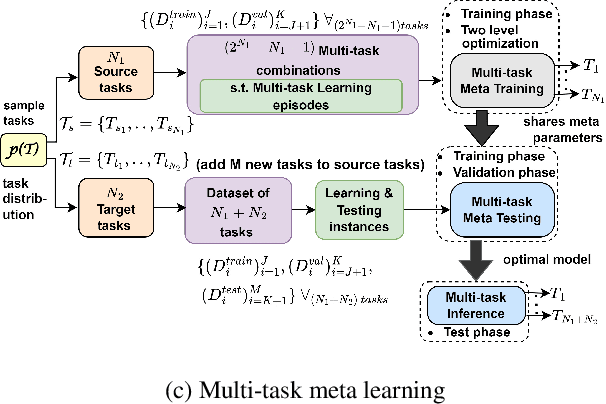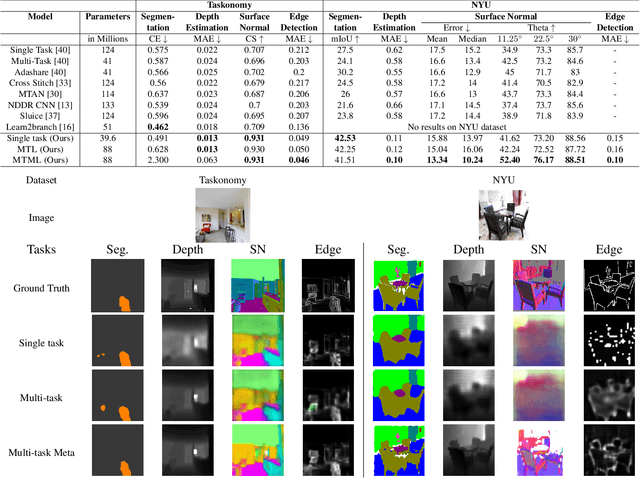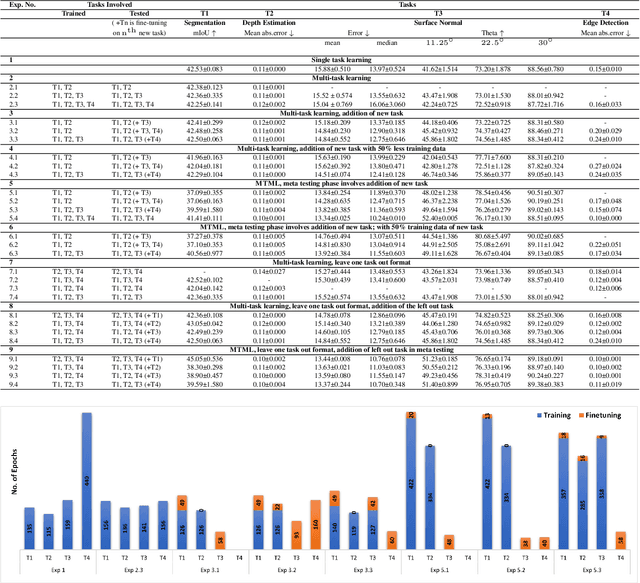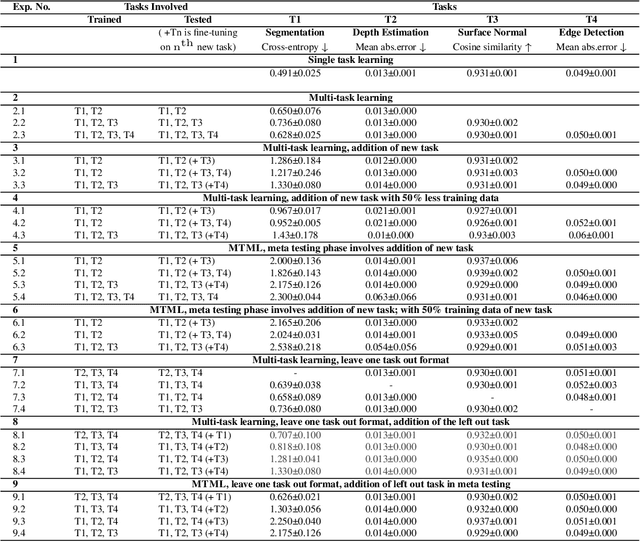Multi-Task Meta Learning: learn how to adapt to unseen tasks
Paper and Code
Oct 13, 2022



This work aims to integrate two learning paradigms Multi-Task Learning (MTL) and meta learning, to bring together the best of both worlds, i.e., simultaneous learning of multiple tasks, an element of MTL and promptly adapting to new tasks with fewer data, a quality of meta learning. We propose Multi-task Meta Learning (MTML), an approach to enhance MTL compared to single task learning by employing meta learning. The fundamental idea of this work is to train a multi-task model, such that when an unseen task is introduced, it can learn in fewer steps whilst offering a performance at least as good as conventional single task learning on the new task or inclusion within the MTL. By conducting various experiments, we demonstrate this paradigm on two datasets and four tasks: NYU-v2 and the taskonomy dataset for which we perform semantic segmentation, depth estimation, surface normal estimation, and edge detection. MTML achieves state-of-the-art results for most of the tasks, and MTL also performs reasonably well for all tasks compared to single task learning.
 Add to Chrome
Add to Chrome Add to Firefox
Add to Firefox Add to Edge
Add to Edge